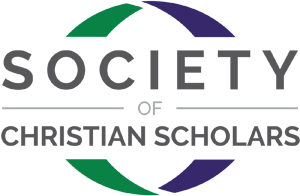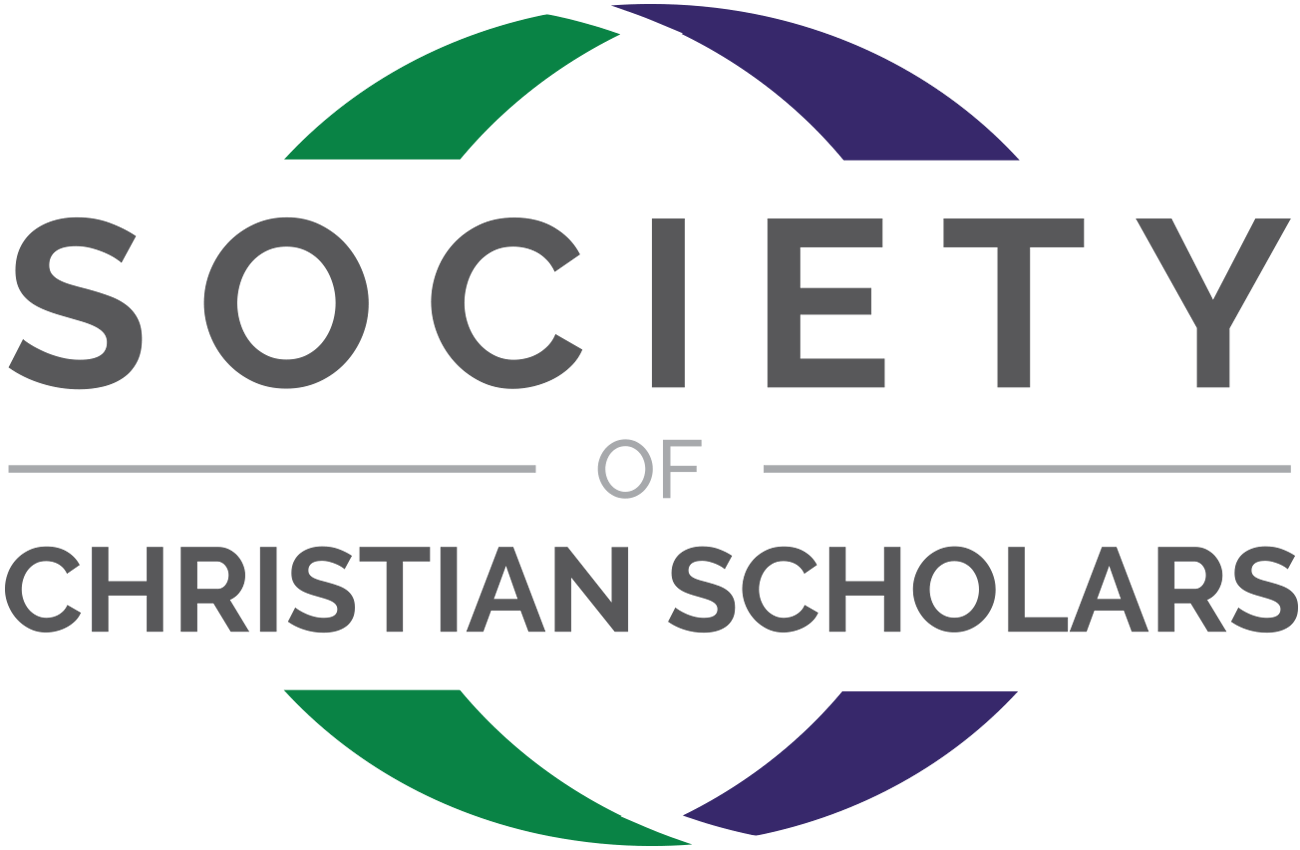Annual Global Scholars Grant Is Open!
The Annual Global Scholars Grant (2025) opened on 1 December. Applications can be submitted until 1 March 2025. The purpose of these grants is to help Society members become better equipped to fulfill their calling in academia.
December 1, 2024: First day to submit applications
March 1, 2025: Deadline for grant submissions
March 1 to May 31, 2025: Grant Evaluation Committee determines grant recipients
June 1, 2025: Grant recipients announced
July 31, 2025: Funds awarded
Grant recipients will be asked to submit regular reports as indicated in the terms of the specific grant.
Several grants between $500 USD and $2,000 USD will be awarded.
Applicants who have received this grant last year (2024) are not allowed to apply this year.
Note: The Annual Global Scholars Grant is only available to Full Members of the Society of Christian Scholars.
2025 Christian Scholars Foundation Legacy Grant
Available to scholars in the U.S. and Canada
Global Scholars, one of the principal partners of the Society of Christian Scholars, will again award one Christian Scholars Foundation Legacy Grant in 2025. The grant will be awarded to a junior faculty member in the U.S. or Canada. The purpose of this grant is to advance Christian scholarship, encourage Christian scholars who are seeking to integrate Christian faith with their academic endeavors, and nurture Christian faculty as they strive for wider recognition in and beyond the academy.
Applicants are required to be members of the Society of Christian Scholars and the Emerging Scholars Network. The 2025 Christian Scholars Foundation Legacy Grant will be $10,000. More details and the grant application are available at the Society of Christian Scholars member site. If you want to share information with a friend who is not yet a member of SCS, they can view the 2025 details at the Emerging Scholars Network blog.
Questions concerning the grant may be sent to Dr. Hannah Eagleson, Christian Scholars Foundation Legacy Grant Director, here. You may read testimonials from past recipients here and interviews with several recent recipients on the Emerging Scholars Network Blog: Carrie Bredow (2016), Jill Ellenbarger (2017), Eleanor McGlinchey (2017), Jennifer Hawk (2018), Derek Thompson (2019), and George Montanez (2023).
Society Opportunities
Job Opportunity
The International University of Central Asia is looking to hire. Below is the Job description and application instructions.
The International University of Central Asia (IUCA) PRESIDENT SEARCH
Contact Person: Jerry Yee – jerryy@glecenter.org; phone/whatsapp – +1 360-9425424
Please do not contact the institutions directly. All communication should go to Jerry Yee. University & College Administration know a search process is happening but for this first stage they are not directly involved. They will be brought into the process at a later date.
Background Information
The International University of Central Asia (IUCA) – https://www.iuca.kg/en – was established in Tokmok, Kyrgyzstan, in 2008, under the auspices of the Mercy Charitable Christian Foundation. IUCA’s inception was guided by a vision to deliver highquality education imbued with biblical ethics and values to the underserved regions of Central Asia. Over the years, IUCA has served as a beacon of hope and opportunity for local communities, graduating approximately 500 professionals since its establishment. Currently, IUCA boasts a student body of around 300, poised to enter the workforce within the next four years. The university offers a diverse array of majors including Information Technology, Linguistics – English, Linguistics – Chinese, Business Administration, Pedagogy (Elementary Education), Law, and International Relations.
The Humanities & Technical College (HTC – https://college.iuca.kg/en/ – Vocational High School) was established in Tokmok, Kyrgyzstan in 2015 by IUCA. It meets the educational needs of high school-aged students in Tokmok and serves as a feeder institution for IUCA. HTC is regarded by the community as one of the top schools in the area and caters to students graduating from high school grade 9, offering three years of education with a focus on specific vocational areas. HTC graduates have the option to either commence employment immediately or pursue higher education at IUCA, potentially reducing their total schooling duration for a Bachelor’s degree by 1-2 years. Currently, HTC provides programs in Information Technology, Preschool Education, English Translation, Tourism, and Law. HTC boasts a student body of around 350.
LOCATION:
Tokmok (pop. 70,000), where these institutions are located, is a small city in the Eastern Chui valley of Kyrgyzstan, nestled alongside the 4,900 m peaks of the Tien Shan (Ala Too) Mountains. Located 60 km from the capital, Bishkek, and a mere 90 minutes’ drive from Manas International Airport, Tokmok boasts proximity to significant urban centers. Just beyond Tokmok lie the remnants of Suyab, a town often cited as Li Bai’s birthplace in 701A.D. Tokmok’s historical significance dates back to its founding in the 1830s by an Uzbek Khan. Throughout the Soviet era, Tokmok underwent transformation into a specialized military city. Presently, Tokmok is home to a diverse population comprising Kyrgyz, Uzbeks, Russians, Uyghurs, Dungans, and Tatars.
Main duties and responsibilities
Ensuring fulfillment of the university’s mission and vision while developing and maintaining the university’s values
Building internal and external revenue streams with a focus on university sustainability and longevity
Establishing and developing partnerships with other national and international organizations and experts.
Management & coordination of university activities, including planning and budgeting.
Developing and implementing management policies and corporate norms;
Effective Implementation of university’s jointly-developed (Board, Founding organization, major donors and administrative team) strategic plans;
Developing the University’s budget for presentation to the Board of Trustees while ensuring efficient, transparent and appropriate use of university funds
Coordination of the university’s relations with regional education management bodies;
Represent the university and support relations to the Ministry of Education and Science of the Kyrgyz Republic and other stakeholders on the issues of the university development
Direct the recruitment of faculty members, administration, negotiations with other stakeholders and signing contracts with them
Qualification requirements:
Be a committed Christian who has a vibrant relationship with Jesus Christ
Expatriate to Kyrgyzstan
Terminal Degree, preferably in one of the majors offered by IUCA/HTC
Experience
· Experience in cross-cultural work required
· Significant administrative/managerial experience in college or university (preferably small private)
· Working contacts in the educational professional environment of their home country and international educational community;
· Experience in negotiating with national and international partners
· Russian or Kyrgyz language and experience in educational research would be helpful
Personal qualities
Humility & flexibility; ability to handle multiple, varied and on-going unpredictability; ability to lead cross-culturally; results-oriented; and good cross-cultural communication skills
Salary
Negotiable. While a salary would be provided, this role would probably require some personal fund-raising or other outside income. Term of 3 years minimum.
Society Library
Update: Library Reading Group begins meeting monthly
Starting in January 2025, the Library Reading Group began meeting monthly on the first Friday of each month. Those wishing to lead a discussion related to a resource of their choice in accord with the Society’s mission should submit the article for review and inclusion in the Society’s Library or choose a resource from the Library. Please contact Dr Marlene Hines at librarian@societyofchristianscholars.org if you would like to lead a discussion.
Library Reading Corner
The Christian Poetics Initiative (CPI) aims to help mentor a new generation of literary scholars and writers. This initiative grew out of conversations among a diverse range of scholars who believe that a Christian vision of literature and the imagination makes important contributions to literary studies. Believing that scholars can demonstrate how Christian faith distinctively enriches our understanding of works of the literary imagination, CPI seeks to invigorate an ongoing conversation and generate high-level work within the broader discourses of the field.
If this is your field of expertise and would like to join the conversation, please contact Dr David Mahan at david.mahan@thercta.org.
This month’s Library Reading Corner feature includes an annotated bibliography of five library resources under the library category of Theology and Academy. These resources provide further reading for the January 2025 webinar, What is a Human Person? A Robust Answer Avoiding Two (Popular) Extremes, presented by Dr. Stan Wallace.
1. Title: Body, Soul and Life Everlasting: Biblical Anthropology and the Monism-Dualism Debate by John Cooper
Brief Description: Fully engaged with theological, philosophical, and scientific discussions of the nature of human persons and their destiny beyond the grave, John Cooper’s defense of ‘holistic dualism’ remains the most satisfying and biblical response to emerge from the monism-dualism debate.
2. Title: Whose Community? Which Interpretation? Philosophical Interpretation for the Church by Merold Wesphal
Brief Description: Distinguished philosopher Merold Westphal introduces current philosophical thinking in relation to the interpretation of the Bible. ‘Recognizing that no theology is completely free of philosophical “contamination,” he engages and mines contemporary hermeneutical theory in service of the church.’
3. Title: Modern Mind and Biblical Interpretation by Christopher Hall
Brief Description: This resource is one of the chapters of Christopher Hall’s book Reading Scripture with the Church Fathers. In this chapter ‘Hall offers an assessment of the modern mind and its approach to biblical interpretation, making the case for retrieving a patristic approach to interpreting Scripture.’
4. Title: A Biblical Theology of Human Flourishing by Jonathan Pennington
Brief Description: In this blog, Pennington presents arguments in support of “the universal desire for human flourishing across cultures,” bearing in mind the different interpretations of the concept that may emerge as influenced by varied socio-cultural contexts.
5. Title: Understanding and Applying Constituent Realism by Stan Wallace
Brief Description: This resource is a part of Stan Wallace’s doctoral thesis and ‘offers a helpful approach for understanding how to respond to naturalism in your field of inquiry by demonstrating where immaterial realities emerge across a wide array of academic disciplines.’
If you need to contact the Society’s librarian, Dr Marlene Hines, you can reach her at librarian@societyofchristianscholars.org.
Upcoming Conference
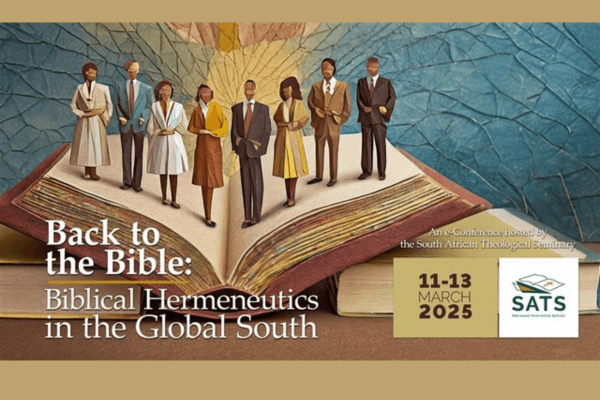
An e-Conference hosted by the South African Theological Seminary on 11–13 March 2025
Each interpreter’s hermeneutical approach flows from his or her posture towards the biblical text. Following the surge of higher critical methodologies in the 20th century, the hermeneutical landscape has been marked by a recent rise in ideological criticisms, cultural relativism, and reader-response approaches. Such reading strategies have resulted in biblical analyses that place the reader at the center of interpretation thereby giving them authority over the sacred text. The so-called hermeneutic of suspicion, which seeks to read against the grain of Scripture, has been eroding the conviction that Scripture is God-breathed, useful for teaching, rebuking, correcting, and training in righteousness (2 Tim 3:16).
The rise of perilous hermeneutical approaches and their erosion of a hermeneutic of trust calls for a return to the text and a critical reconsideration of the reading strategies we adopt. In response to these dangers and opportunities for engagement, the 2025 South African Theological Seminary e-Conference has the theme “Back to the Bible: Biblical Hermeneutics in the Global South.” Celebrating the beauty, trustworthiness, and efficacy of Scripture, we aim to foster a dialogue around theories of interpretation and their application. We will explore the relationship between text and context, the centrality of Christ in the Bible, and the transformative power of the Scriptures to shape faith communities.
Please direct any questions to Dr Sarah Churchill (sarah@sats.ac.za).
Upcoming Webinars
Be sure to check the Webinars Page for third-party webinars that are often added on short notice and for updated presenters and topics that may be helpful in equipping you to bring the gospel to bear in your university context.
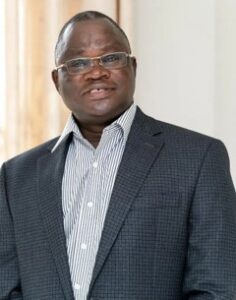

My Neighbour’s Faith: Christian-Muslim Engagement in West Africa by John Azumah – Thursday, 20 February 2025 at 1400 UTC
Violence in various regions of Africa over the last year, as well as in the Middle East, continues to raise questions concerning the relationship between Christianity and Islam. Is there a way forward where people of different faiths can live together as neighbours in peace and harmony, for the good of a community, society, and the university?
On Thursday, 20 February 2025 at 1400 UTC, Prof. John Azumah, Executive Director of the Sanneh Institute at the University of Ghana, will focus on the nature and dynamics of Christian-Muslim relations in West Africa, ranging from family to national and regional levels. He will highlight the threats of Islamic militancy in the region and will focus on the long-standing, deeply rooted pacifist tradition of West African Islam. Prof. Azumah will also share his personal journey of faith and scholarship, his family background, and how these contribute in important ways to shaping the Sanneh Institute’s work.
The Sannah Institute, named after the late Prof. Lamin Sanneh, exists to equip and resource religious leaders, scholars, academic institutions and wider African society through advanced inquiry. Deeply rooted in West African traditions, the Institute seeks to inspire intellectual curiosity in the religious and non-religious other through research, translation work, publications, education, and engagement. In its activities, including seminars, conferences and workshops, the Sanneh Institute strives for academic excellence as a tribute to God and in service to African society.
We hope you will join us for this important conversation.
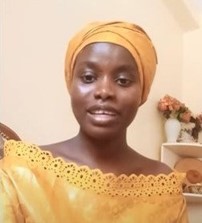

Perceptions and Determinants of Entrepreneurship in a Christian Environment: A Science-and-Faith Analysis by Albertine Bayompe Kabou – Thursday, 20 March 2025 at 1400 UTC
Poverty is a real challenge for African countries where unemployment rates are very high. Many people, especially young people, live in very difficult conditions. Careful inquiry grounded in a solid understanding of social development and entrepreneurship can discern why Christian Francophone are so marginal with respect to economic development in their countries.
On Thursday, 20 March 2025 at 1400 UTC, Dr Albertine Bayompe Kabou, Lecturer in Economics at Université Assane SECK de Ziguinchor in Senegal, will discuss her analysis of Christians in Francophone African countries and why they seem to have a passive attitude towards entrepreneurship. Their lack of involvement in entrepreneurship has roots in the continent’s history of slavery and colonization, but also in other sources such as the educational system, the sociological characteristics of Africans and the influence of religious beliefs.
The objective of this presentation is to explain the perceptions of entrepreneurship among Christians in French-speaking Africa. Kabou’s research not only addresses the causes of the passivity of French-speaking African Christians in entrepreneurship; it also identifies ways to make them more present in economic development with the aim of improving their living conditions and financing mission and evangelization projects.
Join the conversation about how entrepreneurial business can be a tool to effect real change for the well-being of your society by registering below!
The Q&A will be in both French and English. It will be moderated by Laurent KAYOGERA, a scholar of communication sciences, a leader of SCS Burundi, a training coordinator for the Burundian IFES movement, and a senior catalyst in the Logos and Cosmos Initiative, and Stephen NEY, a scholar of literature from Canada who teaches academic writing and critical thinking in Sierra Leone and coordinates theology-and-science training for the IFES Logos and Cosmos Initiative.
Disclaimer: The views and opinions expressed in the Addenda are those of the authors and do not necessarily reflect the views or positions of the Society of Christian Scholars.
